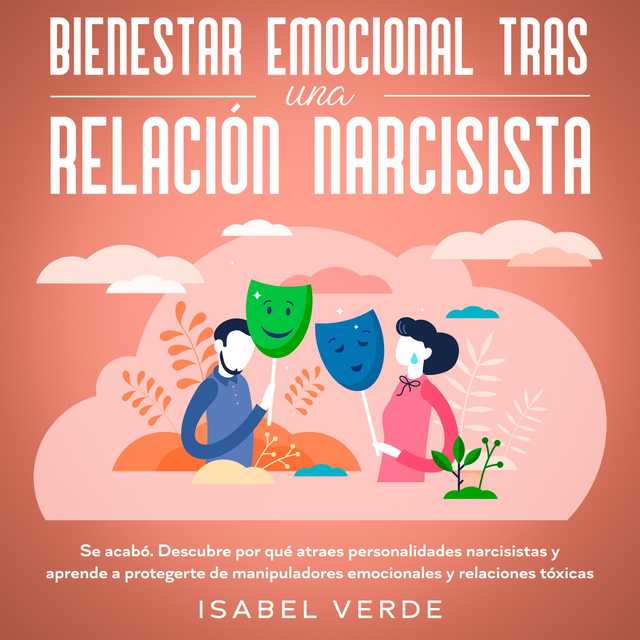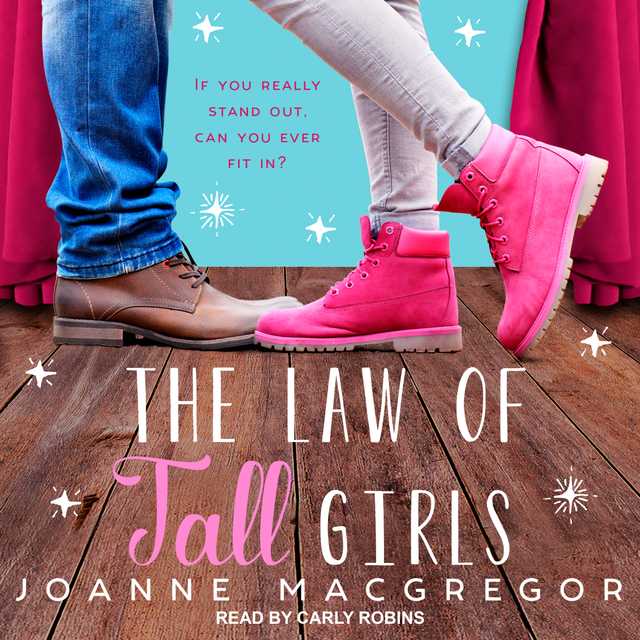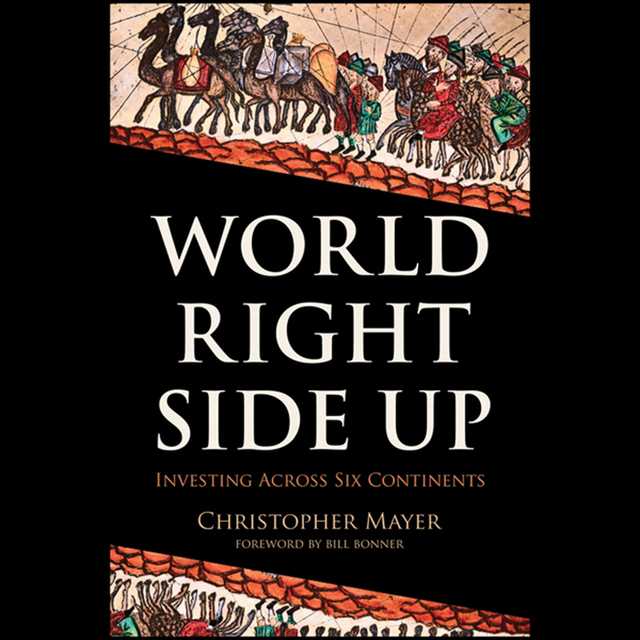How Will You Measure Your Life? Audiobook Summary
From the world’s leading thinker on innovation and New York Times bestselling author of The Innovator’s Dilemma, Clayton M. Christensen, comes an unconventional book of inspiration and wisdom for achieving a fulfilling life. Christensen’s The Innovator’s Dilemma, notably the only business book that Apple’s Steve Jobs said “deeply influenced” him, is widely recognized as one of the most significant business books ever published. Now, in the tradition of Randy Pausch’s The Last Lecture and Anna Quindlen’s A Short Guide to a Happy Life, Christensen’s How Will You Measure Your Life is with a book of lucid observations and penetrating insights designed to help any reader–student or teacher, mid-career professional or retiree, parent or child–forge their own paths to fulfillment.
Other Top Audiobooks
How Will You Measure Your Life? Audiobook Narrator
Jeff Woodman is the narrator of How Will You Measure Your Life? audiobook that was written by Clayton M. Christensen
CLAYTON M. CHRISTENSEN (1952-2020) was the Kim B. Clark Professor at Harvard Business School, the author of nine books, a five-time recipient of the McKinsey Award for Harvard Business Review’s best article, and the cofounder of four companies, including the innovation consulting firm Innosight. In 2011 and 2013 he was named the world’s most influential business thinker in a biennial ranking conducted by Thinkers50.
About the Author(s) of How Will You Measure Your Life?
Clayton M. Christensen is the author of How Will You Measure Your Life?
More From the Same
- Author : Clayton M. Christensen
- The Prosperity Paradox
- Competing Against Luck
- The Innovator’s Prescription
- HBR’s 10 Must Reads on Strategic Marketing
- The Innovator’s Prescription
- Publisher : HarperAudio
- Abraham
- American Gods [TV Tie-In]
- Dead Ringer
- House of Sand and Fog
- Prey
How Will You Measure Your Life? Full Details
| Narrator | Jeff Woodman |
| Length | 5 hours 28 minutes |
| Author | Clayton M. Christensen |
| Publisher | HarperAudio |
| Release date | May 15, 2012 |
| ISBN | 9780062189615 |
Additional info
The publisher of the How Will You Measure Your Life? is HarperAudio. The imprint is HarperAudio. It is supplied by HarperAudio. The ISBN-13 is 9780062189615.
Global Availability
This book is only available in the United States.
Goodreads Reviews
Kristin
May 26, 2016
The rare non-fiction book that isn't actually an essay parading as a book. This was a quick read in simple, clear language with good analogies and no unnecessary repetition. A summary of the career-focused bits:Find Your PurposeLikeness - who you want to becomeCommitment - to becoming that at every step. Actually spending your time and energy in ways that get you closer to your likeness.Metrics - to measure your progress towards becoming the likenessClayton’s LikenessA man who is dedicated to helping improve the lives of other peopleA kind, honest, forgiving, and selfless husband, father, and friendA man who doesn't just believe in God but who believes GodDon't confuse hygiene with motivationMotivation:The things that make you love going to work. Feeling that you are doing work that is meaningful to you and making a meaningful contribution; Challenging work, recognition, responsibility, and personal growth.Hygiene Factors: Status, compensation, job security, work conditions, company policies, and supervisory practices. Bad hygiene causes dissatisfaction. But good hygiene factors just mean you are not dissatisfied with your job, not that you love your job.StrategyDeliberative - a focused planEmergent - unexpected opportunities that ariseAsk what has to prove trueAsk yourself “What are the assumptions that have to prove true in order for me to be happy with this choice?” List them. Test their validity: how do you know the company really has a team culture? How do you know they will be growing this group? etc. Are they within your control?
Tadiana ✩Night Owl☽
March 01, 2019
Clayton Christensen, an extraordinary businessman, teacher and person, penned this self-help book (with the help of two co-authors) when (and after) he was reevaluating his life due to a bout with cancer - the same cancer that killed his father. It's a clearly written book with many stories and examples (YAY! I love stories) from both business and family events that illustrate his many points. Where people went right. Where people went wrong.This books poses a lot of interrelated questions for readers, dealing with both career success ("How can I find satisfaction in my career?) and interpersonal relationships and happiness in life generally. Too often we let the parts of our life that seem important at the time, or are more demanding in the moment, take away from the things that really matter, like family and friends. Certainly I've been guilty of spending time on things that don't ultimately matter much, while letting more productive and important things (talking and hanging out with my kids, for example) get short shrift.I appreciated the author's distinction in our careers between the things that make us dissatisfied - what he calls hygiene factors: money, status, compensation, and job security (they don't actually make us happy, but if they're making us dissatisfied that's a problem) and the things that we need to make us satisfied with our job. These are "motivation factors": challenging work, recognition, responsibility, and personal growth. Some key quotes:Regarding the need for flexibility and willingness to reconsider plans that aren't working well, and look at unexpected alternatives: "Successful companies don’t succeed because they have the right strategy at the beginning; but rather, because they have money left over after the original strategy fails, so that they can pivot and try another approach. Most of those that fail, in contrast, spend all their money on their original strategy—which is usually wrong.""How you allocate your own resources can make your life turn out to be exactly as you hope or very different from what you intend.”“The trap many people fall into is to allocate their time to whoever screams loudest, and their talent to whatever offers them the fastest reward. That’s a dangerous way to build a strategy.”"If the decisions you make about where you invest your blood, sweat, and tears are not consistent with the person you aspire to be, you’ll never become that person.”"I genuinely believe that relationships with family and close friends are one of the greatest sources of happiness in life. It sounds simple, but like any important investment, these relationships need consistent attention and care. But there are two forces that will be constantly working against this happening. First, you’ll be routinely tempted to invest your resources elsewhere—in things that will provide you with a more immediate payoff. And second, your family and friends rarely shout the loudest to demand your attention. They love you and they want to support your career, too. That can add up to neglecting the people you care about most in the world. The theory of good money, bad money explains that the clock of building a fulfilling relationship is ticking from the start. If you don’t nurture and develop those relationships, they won’t be there to support you if you find yourself traversing some of the more challenging stretches of life, or as one of the most important sources of happiness in your life."This book is worth buying and keeping, and studying more closely from time to time. Very worthwhile ideas, and a lot of them aren't obvious ones. Recommended!
Todd
June 23, 2012
I had read articles that mentioned Clayton Christensen, and he was always described as a brilliant business consultant and professor at Harvard Business School, who is also LDS. Recently, he came and spoke at our quarterly department meeting, and I came to understand why people spoke so highly of him. While he was only scheduled to speak for an hour, I listened to him speak for 2 hours, and found myself wanting more. He told fascinating anecdotes from his days as a consultant, and applied the lessons he learned to some the of the issues we are facing at our company and in our industry.When I saw he had recently published a new book, I was interested to read it. In a similar fashion to our meeting, he applies the theories and lessons learned from a career in business to how we make the decisions in our lives. Too often, we seem to wander through phases of our lives without too much of a plan, or the wrong approaches to achieving our goals. Clayton states that just as successful businesses follow certain practices and principles, many of those same approaches can also help us to be successful in our personal lives.As an MBA graduate, I found the business stories very interesting. As a person who has worked for many different companies over my career, I found that he "gets it" -- these aren't just abstract theories, but I've seen similar examples in the companies I've worked for.When it comes to applying those same theories to personal life, it also rings true. I've seen in my own life, and in the lives of others, how simple choices, or the lack of a plan, can leave to unwanted results and tragedies. Likewise, having an idea of what you want to make of your life, and following through, can result in great rewards.I agree with others who have read the book that it made me feel inadequate in many areas, but also gave me many things to think about as I fill my role in my career, as a father, and as a person.
Ricky
May 20, 2012
I was lucky enough to read ‘The Innovators Dilemma’ at a formative point in my Pharma R&D career. Like many others, I was captivated by the ability of Christensen’s ‘big idea’ (disruptive innovation) to explain the perplexing phenomenon whereby small startups were able to upend established players in industry segments where the latter should have held all the aces. I have read a number of other books he has put out over the the years. These have invariably given me much to reflect on as a business leader and someone plying their trade in the innovation space.This latest book (http://www.measureyourlife.com/) represents a definite change of direction for the big man and his co-authors - down the ‘Road Less Travelled’ as it were - and they are definitely going for the big one. To quote : “The paramount assertion of this book is that the theories that describe how management works also explain a lot about what causes success and happiness in families, marriages, and within ourselves—and what causes the opposite as well.”The big questions I had going into this new book were these : would it stack up against his previous business classics and would the management-theoretic approach yield useful insight into the knotty problems of personal relationships, child-rearing and life purpose?The answer to these is a qualified yes.Once again it is a stimulating read from Christensen that has got my grey cells whirring pondering some real life-lesson nuggets:* Aligning your resource allocation with your strategy (your strategy is not what you say it is) - be on guard as one invariably subordinates the immediate accomplishment (invariably work related) to the supposed strategic (partner / family / friends)* Dusting off Hertzberg and thinking about your motivational factors separate from hygiene factors* Situations in life where you should be thinking about a deliberate strategy and those when you should be employing an emergent approach* Thinking about your assumptions (what has to prove true) for your life strategy to work and listing these ranked by importance and uncertainty with those most important and least certain at the top.On the other hand, some aspects of the book were uncomfortable / unhelpful.I didn’t like the smug way in which the authors dissed much of the self-help literature out there (“the difference between what to think and how to think”).I also had an adverse reaction to the religious certainty that permeates much of the book and for me ultimately detracted. To be honest, Clay bless him is just too darned nice and perfect - and as the chapters went on I couldn’t help feeling more and more inadequate in terms of how my life conduct contrasted. It’s just good that I’ve recently read Brene Brown’s The Gifts of Imperfection (http://www.brenebrown.com/books/) or I might have been off to the bathroom to slit my wrists on about page 160!Overall, hats off to Clay, James and Karen for having the mojo to put this personally risky business/self-help mashup out there.Time will tell whether this book will have the intended effect of nailing the big personal questions knawing away at the psyche of today’s thrusting business professional in an evidence-based way they will better be able to relate to. For me, newly retired from big Pharma and turning my mind to other endeavours I have long been postponing, it’s conceptual framework is a timely gift.
Ken
November 10, 2012
Many in a time we get asked (or ask ourselves) what are our life goals? what do we want to be remembered for before we say goodbye to this world? How do we live a life of purpose and fulfillment? This book offers a way to deeply think about these questions, and perhaps chart some possible answers and directions that we need to take to achieve them.One interesting issue that Clay talks about revolves around parenting. As parents, we would want our children to be equipped with the knowledge and skills to succeed in their lives. Hence most parents try to expose their children to as many opportunities as possible (such as learning a musical instrument, sport, tuition classes, etc), in hope that they will be in a more advantageous position to succeed in life than their peers. I used to hold the same viewpoint too.Clay contends, however, that these are merely Resources. The problem comes when exposing children to an endless array of activities is when they are not truly engaged and when these activities don't challenge them to do hard things and learn the correct values and responsibilities out of it. What children need to learn are Processes, i.e. the skills needed to learn a skill, the knowledge needed to acquire new knowledge, the experience to learn from experiences. This got me to understand that rather than by giving children Resources, it is more important for them to learn about Processes. These often cannot be taught by outsourcing what we need to teach our children to the "activities" themselves. But rather, we need to be a role model for our children and make the correct decisions so as to impart the correct values when we interact with them on a daily basis. With the right Processes and Priorities they will then be able to learn better from the Resources they have and this, if anything will make them better individuals.
Mitesh
November 16, 2013
This book blew my mind and heart. It fundamentally challenged me to think about my life choices. Is a fairly quick read though it took me a while to get into. This is not a self-help book, it does not offer a set path or any quick fixes. Clay draws on theories he has learnt in business and life effortlessly and interchangeably. I will refer to this book and its lessons again and again. Here's a snapshot of my 10 main takeaways:1. Theories are powerful tools. Without a plan or a theory you are at sea without a sextant. Good theory helps people steer to good decisions, not just in business but in life too.2. What makes us tick? One of the easiest mistakes we can make is to focus on trying to over satisfy the tangible trappings of professional success in the mistaken belief that this will make us happy. As most of us usually find out, often too late, pursuing happiness is a hopeless quest. Instead we need to ask ourselves - is this work meaningful, will I learn new things, will I have the opportunity for recognition and achievement and am I going to have responsibility? These are the things that truly motivate human beings (leaning, meaning, achievement and responsibility), the rest (compensation, perks, etc) are just hygiene factors.3. Emergence. Only a few lucky companies start of with the strategy that ultimately leads to success, strategy for most evolves over time. In reality success relies on our continuing to experiment until we find an approach that works. Expecting to have a clear vision of where life will take you from the start is a waste of time. What's even worse is that you close yourself off from unexpected opportunities. You should be prepared to experiment with different opportunities, ready to pivot and continue to adjust your strategy until you find what it is that both satisfies the hygiene factors and give you all the things you need to be motivated. 4. Strategy isn't what you say, but it what you do. In business and in life, a strategy is not just a one-off vision, goal or plan, it is actually created through hundreds of everyday decisions about how you spend your time, energy and money (resource allocation). With each of these decisions we make a statement about what really matters to us. We can talk about our purpose, values and goals but ultimately this means nothing if we are not investing our time, energy and money in a way that is consistent with that. If you think you're charitable, ask yourself how often so you really give time or money to a worthy cause? If your family are important to you, think about how often does your family come out top in all the choices you have made in the past week. If our daily decisions about where to invest our blood, sweat and tears are not consistent with the person we say we are, think we are or aspire to be, we'll never become that person.5. Why do we take our relationships with friends and family for granted (not giving then the necessary attention and care), even though we know that they are the greatest source of happiness in life. The first reason is we are mostly tempted to invest our resources in things that offer immediate rewards and feedback like our careers. Secondly, family and friends rarely shout the loudest for our attention. If we don't recognize this, to nurture and develop these relationships early on, then they won't there for us when we need them the most. It will always be tempting to defer this, because you are busy with your career right now, but that's the wrong way round. You have to invest in relationships long before you need them.6. Marriage: Being a good spouse is one of the most important jobs you can be hired to do. Asking yourself "what job does my spouse most need me to do?" comes first. Then you need to go beyond just knowing this, you have to do that job, you have to devote your time and energy to the effort, suppressing your own needs and desires and focusing on what will make the other person happy. The path to happiness in a relationship is not just about finding someone who you think will make you happy; it is about finding someone who you want to make happy. Marriage is about finding someone whose happiness is worth devoting yourself to." This doesn't build resentment, quite the opposite, in sacrificing for something worthwhile, you deeply strengthen your commitment to it. Sacrifice deepens commitment. It is an essential foundation to deep friendships, happy families and marriages. 7. Parenting: Be careful about outsourcing parenting. If your children learn everything they know from teachers, friends, clubs, TV, etc in what way are they your children? We live in an affluent society that is obsessed with giving children opportunities. Whilst that is valuable it is only one of three things our children really need to succeed - resources, processes and routines (just like a business or organisation does). A musical instrument, sport, after school club, books, TV, Wii, DS, etc teach skills, which are 'resources', just like the other material and economic privileges, skills and talents we offer our children. However, they need more than resources. They need 'processes', habits and routines to convert those resources into something useful, to create something for themselves. They need to learn routines for how to think, how to solve problems, how to deal with failure, to get somewhere on time, to share, to make sacrifices, to deal with peer pressure, to build relationships, etc. Most important of all they need values and 'priorities'. This defines how they will make decisions, what they will invest their time and resources in and what not. The best way of developing processes and priorities is by solving hard problems for themselves. Self-esteem comes from knowing "I am not afraid of confronting this problem, I've seen something like it before and I think I know how to go about trying to solve it." As parents we need to find problems for our children to solve on their own, problems that can help them build their processes and self esteem. Children learn when they are ready to learn, not when you're free to teach them. So if you're not with them as they encounter challenges in their lives, then you are missing important opportunities to shape their priorities and their lives. 8. School of experience. The idea that some people have innate talents that just need to be identified through interviews and other recruitment processes has proven to be an unreliable predictor of success in business. The 'right stuff' that most companies are looking for is not a superior set of skills that someone is born with but skills people have honed through life's experiences. We should not focus too much on the grades, trophies and accolades someone has but instead look carefully for whether a person has actually wrestled with the problems you need them to tackle. Similarly the challenges our children face serve an important purpose: they help them hone and develop the capabilities necessary to succeed in life. We all know that challenges, difficulties, failure and sorrow are all courses in the school of life/experience we need, so why not work backwards and find the right experiences to help our children build the skills they will need to succeed. You need to figure out what courses will be important for you to master before you need them. As a parent find small opportunities for your child to take these life courses early on. Encourage them to stretch, to have goals, to try and fail and learn. Celebrate failure and success. If our children don't face difficult challenges and sometimes fail along the way, they will not build the resilience they will need in life.9. Culture. Culture happens in a company or in a family whether you want it to or not, the only question is how hard you are going to try to influence it. A culture is set through everyday interactions, how you react, reward and respond. Once it is set it's almost impossible to change. Every time children or employees face a problem they aren't just solving it they are learning what matters to you. They are developing an understanding of what matters to the business, what are the priorities and how to execute them (the processes). 10. Morality and purpose. Decide what you stand for and stand for it all of the time. Define your own boundaries, your personal moral line, and don't cross it, not even once.Thank you Clayton for sharing your lessons from a lifetime of learning, working, observing and experimenting. I highly recommend this book to all.
Kori
August 31, 2012
This book made me think about how I "manage" my family and my own life and has made me actually define my purposes. My favorite excerpt is :"The challenges your children face serve an important purpose: they will help them hone and develop the capabilities necessary to succeed throughout their lives. Coping with a difficult teacher, failing at a sport, learning to navigate the complex social structure of cliques in school--all those things become "courses" in the school of experience. We know that people who fail in their jobs often do so not because they are inherently incapable of succeeding, but because their experiences have not prepared them for the challenges of that job--in other words, they've taken the wrong "courses." The natural tendency of many parents is to focus entirely on building your child's resume: good grades, sports successes, and so on. It would be a mistake, however, to neglect the courses your children need to equip them for the future. Once you have that figured out, work backward: find the right experiences to help them build the skills they'll need to succeed. It's one of the greatest gifts you can give them."
Gavin
March 19, 2017
Phenomenal little read replete with intense nuggets of vocational and personal advice. Intense nuggets. As the owner of a popular YouTube startup and poised at the brink of starting up a family with my wife, this book came at a great time. The central premise is that we need to pay attention to the process of decision-making in our business and personal spheres, not just our nominal end goals or whatever seems to be the most immediately rewarding way to invest our time and resources in the short-term. Learning how to replicate successful processes happens by "watching movies" (analyzing how implemented values and healthy processes led to a company's or individual's success at each separate decision along the way) rather than by "viewing shapshots" (looking at the current state of a successful company or individual and assuming that the same steps they took will result in similar success). Christensen, a Harvard business professor who also happens to be a devout Mormon, has clearly thought about and rarefied his theories over and over again, refining his ideas like tumbled rocks and figuring out the optimally eloquent way to express them.A smattering of my favorite nuggets:– I want you to be able to experience that feeling – to wake up every morning thinking how lucky you are to be doing what you're doing. – You can talk all you want about having a strategy for your life, understanding motivation, and balancing aspirations with unanticipated opportunities. But ultimately, this means nothing if you do not align those with where you actually expend your time, money, and energy.– This means, almost paradoxically, that the time when it is most important to invest in building strong families and close friendships is when it appears, at the surface, an is if it's not necessary.– Capital that seeks growth before profits is bad capital.– Self-esteem – the sense that "I'm not afraid to confront this problem and I think I can solve it" – doesn't come from abundant resources. Rather, self-esteem comes from achieving something important when it's hard to do.– As Henry Ford once put it, "If you need a machine and don't buy it, then you will ultimately find that you have paid for it and don't have it." Thinking on a marginal basis can be very, very dangerous.– Decide what you stand for. And then stand for it all the time.
Masum
June 26, 2020
This is one of the books that is going to shape the way I think from this point forward. We culturally learn to measure ourselves through the success in our careers. We celebrate CEO's, athletes, celebrities, who have gathered enormous wealth and fame. We consider people in top positions in companies with a large sum of salaries as the successful ones. But often behind the facade of their success, they are dissatisfied with their career, have failing marriages, or severely dissatisfied with their personal life. Eventually many of them end up in jail for corruption, misconduct. So clearly, career as the measure for one's life is not accurate. This book attempts to answer then what it should be.The author says that a healthy balance between one's satisfaction in both career and family and social life should be the measure for one's life. He draws a parallel between maintaining a healthy family and running a successful company. He lays down ways to maintaining relationship with a spouse, raising children, building a family culture that the children will carry their lifetime. It takes tremendous effort to do these right, and there is no shortcut. But happiness isn't cheap. One has to plan ahead on what direction they want to take their career or family towards, at the same time be open to surprises and willing to change direction. One interesting suggestion from the author is to decide early where one wants to see oneself in the future both in terms of family and career, find out the necessary "courses in the school of experience" to get there, and take those courses however hard they are.It's a beautiful book for career-oriented people. Highly recommended.
Batzul
September 11, 2016
One of the best books I have read in my life for sure. Case studies of "personal life failures" (colleagues jailed for inside trading, a friend who failed in marriages 3 times, parents failing to raise their children properly, etc) and the "company failures" were most interesting to me. Another best message of the book was to never give up to the "Just this once" thoughts and "Live with Integrity". When you die, what will you leave behind? What is your legacy? What will your family and friends remember you by? A busy mom that was never home? A cheating father? A fake friend that was absent when needed the most? Every action and choice leads you to "Who You Are". Live a life with integrity and leave a legacy of respect, positive impact and happy family and friends.
Most Popular Audiobooks
Frequently asked questions
Listening to audiobooks not only easy, it is also very convenient. You can listen to audiobooks on almost every device. From your laptop to your smart phone or even a smart speaker like Apple HomePod or even Alexa. Here’s how you can get started listening to audiobooks.
- 1. Download your favorite audiobook app such as Speechify.
- 2. Sign up for an account.
- 3. Browse the library for the best audiobooks and select the first one for free
- 4. Download the audiobook file to your device
- 5. Open the Speechify audiobook app and select the audiobook you want to listen to.
- 6. Adjust the playback speed and other settings to your preference.
- 7. Press play and enjoy!
While you can listen to the bestsellers on almost any device, and preferences may vary, generally smart phones are offer the most convenience factor. You could be working out, grocery shopping, or even watching your dog in the dog park on a Saturday morning.
However, most audiobook apps work across multiple devices so you can pick up that riveting new Stephen King book you started at the dog park, back on your laptop when you get back home.
Speechify is one of the best apps for audiobooks. The pricing structure is the most competitive in the market and the app is easy to use. It features the best sellers and award winning authors. Listen to your favorite books or discover new ones and listen to real voice actors read to you. Getting started is easy, the first book is free.
Research showcasing the brain health benefits of reading on a regular basis is wide-ranging and undeniable. However, research comparing the benefits of reading vs listening is much more sparse. According to professor of psychology and author Dr. Kristen Willeumier, though, there is good reason to believe that the reading experience provided by audiobooks offers many of the same brain benefits as reading a physical book.
Audiobooks are recordings of books that are read aloud by a professional voice actor. The recordings are typically available for purchase and download in digital formats such as MP3, WMA, or AAC. They can also be streamed from online services like Speechify, Audible, AppleBooks, or Spotify.
You simply download the app onto your smart phone, create your account, and in Speechify, you can choose your first book, from our vast library of best-sellers and classics, to read for free.
Audiobooks, like real books can add up over time. Here’s where you can listen to audiobooks for free. Speechify let’s you read your first best seller for free. Apart from that, we have a vast selection of free audiobooks that you can enjoy. Get the same rich experience no matter if the book was free or not.
It depends. Yes, there are free audiobooks and paid audiobooks. Speechify offers a blend of both!
It varies. The easiest way depends on a few things. The app and service you use, which device, and platform. Speechify is the easiest way to listen to audiobooks. Downloading the app is quick. It is not a large app and does not eat up space on your iPhone or Android device.
Listening to audiobooks on your smart phone, with Speechify, is the easiest way to listen to audiobooks.

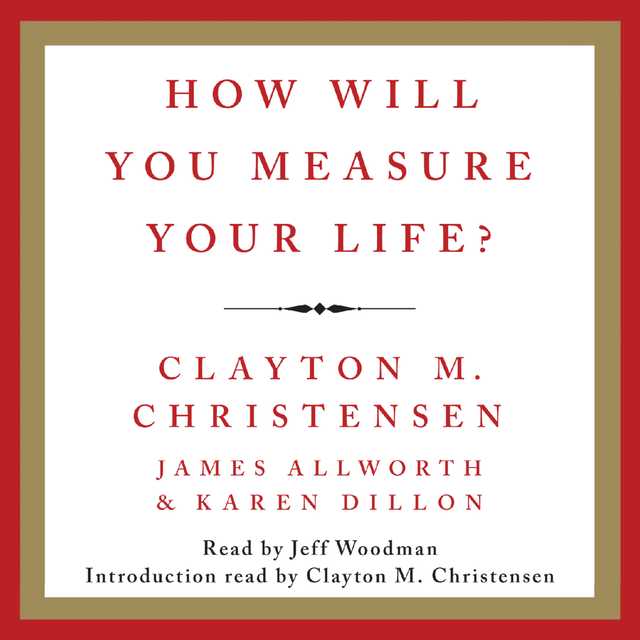









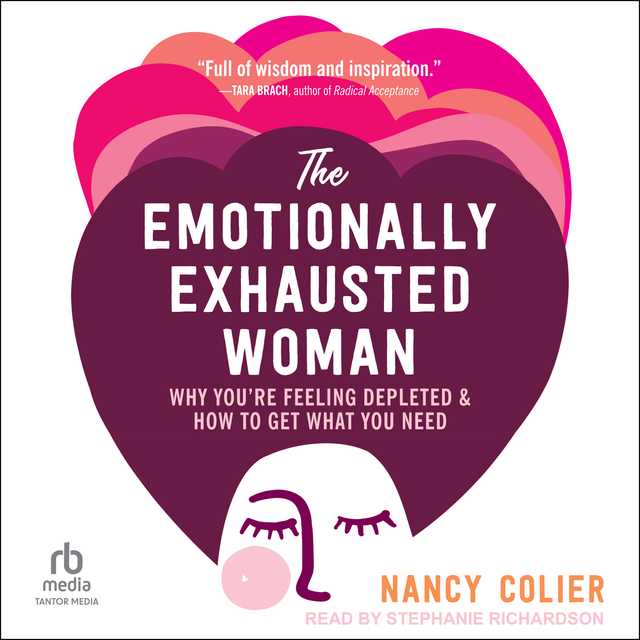
![Shockscape [Dramatized Adaptation]](https://speechify.com/audiobooks/wp-content/uploads/sites/29/2023/06/pr_eaudio_9781645419556_640px.jpg)

